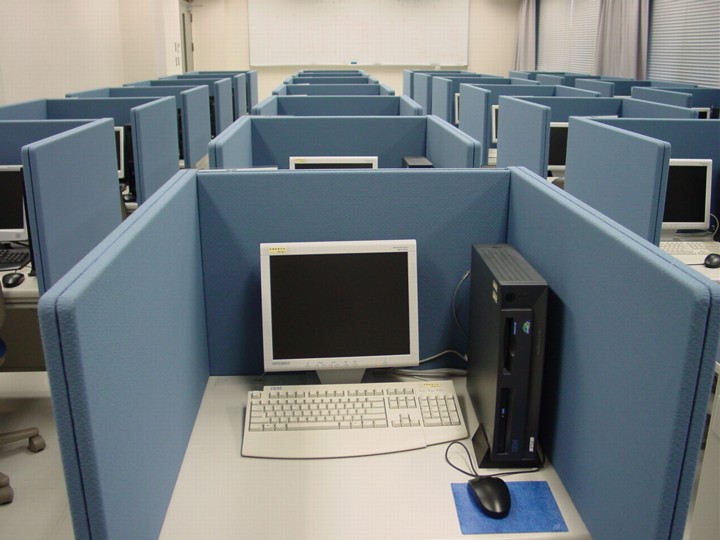
The Open Research Centre WWW Site
Division of Economics, Graduate School
Kyoto Sangyo University, Kyoto, Japan
Experimental Economics:
Who learns what from economic experiments?
(This project is selected as an Open Research Centre by the Ministry of Education, Culture, Sport, Science and Technology, FY2006 - FY2008)
In the last 5 years (2001-2005), we have been working on the project,
"Experimental Economics: A new method of teaching economics and the
research on its impact on society." Because of our past efforts for
this project, we have fortunately been approved to extend our project
from 2006 to 2008. We will further develop our research agenda focusing
on experimental economics, economics education, and neuroeconomics to
train researchers in those fields.
In the past project, we established our laboratory KEEL (Kyoto
Experimental Economics Laboratory) in March, 2002. Since then, we have
conducted a variety of experiments with many researchers in various
research fields. The outcomes of those studies have been presented at
many conferences and published in journals. In December, 2004, we
invited Nobel laureate, Vernon Smith and other leading researchers to
our first international conference, "Experiments in Economic Sciences:
New Approaches to Solving Real-world Problems."
 In the new project, we will develop educational material for teaching
economics through experiments. We think that it is important for
students not only to join experiments as subjects but also to design
and run experiments by themselves. In addition to that, we will train
our students how to analyze the data that they collected from their
experiments. These new programs are all based on our past experiences
in academic studies on experimental research and economics education
using experiments.
In the new project, we will develop educational material for teaching
economics through experiments. We think that it is important for
students not only to join experiments as subjects but also to design
and run experiments by themselves. In addition to that, we will train
our students how to analyze the data that they collected from their
experiments. These new programs are all based on our past experiences
in academic studies on experimental research and economics education
using experiments.
Our new goal is now to understand the behavior of homo economicus by
observing how human brains function when they face economic
decisions. Neuroeconomics is our new focus. Our research questions for
this new approach are based on the accumulation of our previous
research project. We especially feel the necessity to combine
"learning and reasoning within the system" and "learning and
reasoning about the system."
Considering the future importance of experimental economics and
neuroeconomics, we would like our open and interdisciplinary research
organization to contribute by training many researchers in these fields
in Japan.
 In the new project, we will develop educational material for teaching
economics through experiments. We think that it is important for
students not only to join experiments as subjects but also to design
and run experiments by themselves. In addition to that, we will train
our students how to analyze the data that they collected from their
experiments. These new programs are all based on our past experiences
in academic studies on experimental research and economics education
using experiments.
In the new project, we will develop educational material for teaching
economics through experiments. We think that it is important for
students not only to join experiments as subjects but also to design
and run experiments by themselves. In addition to that, we will train
our students how to analyze the data that they collected from their
experiments. These new programs are all based on our past experiences
in academic studies on experimental research and economics education
using experiments.
